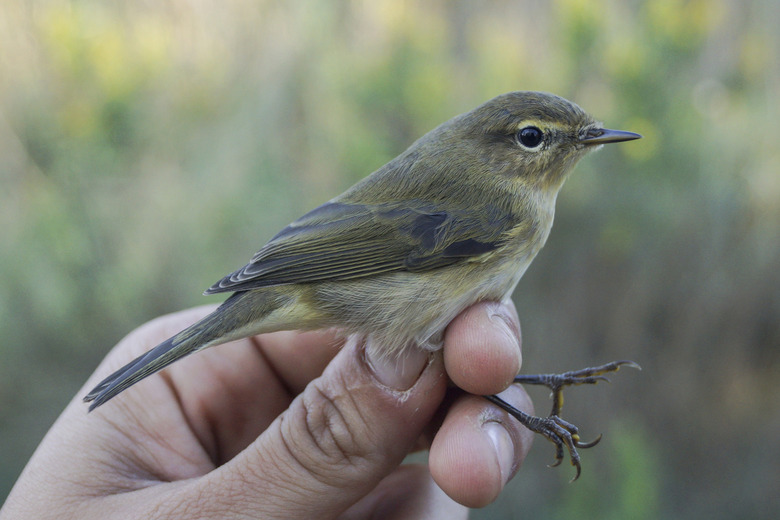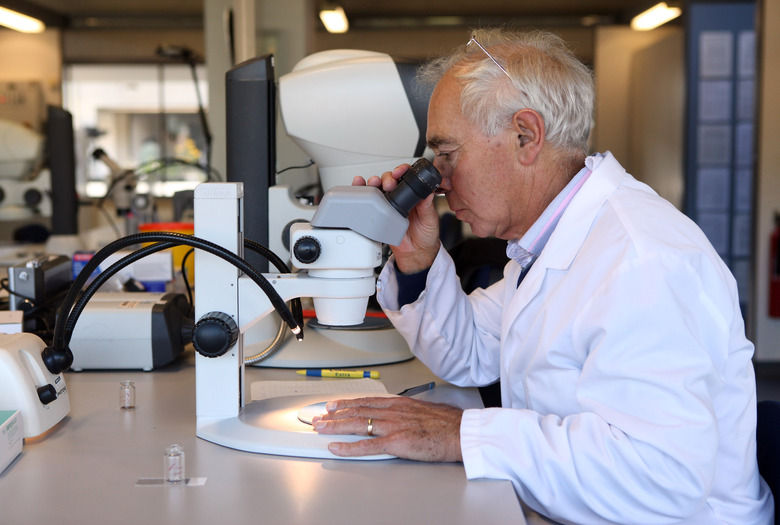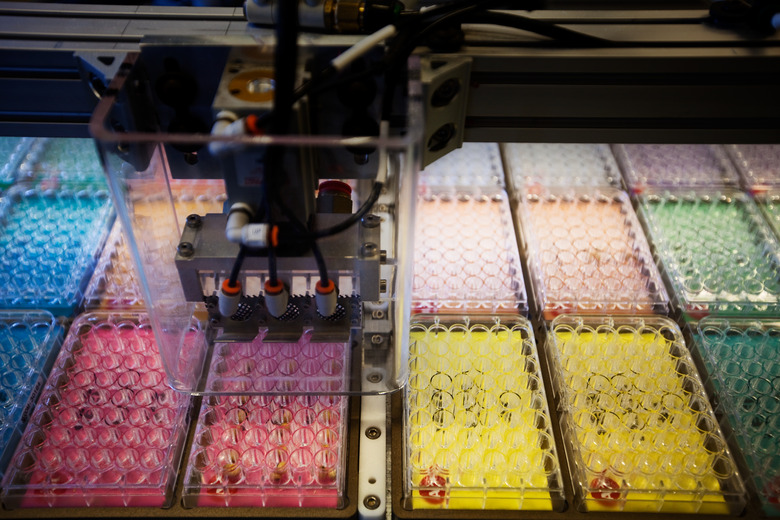What Are The Different Sub-Fields Of Biology?
Biology is broadly defined as the study of living organisms and the vital processes in and around them, including the molecular and chemical processes that keep these organisms alive. Biology studies the evolution and development of humans, animals, plants, fungi and microorganisms and their interaction with their environment. A multitude of specialized sub-disciplines fall within these categories, and new disciplines continue to emerge.
Cellular and Subcellular Biology Disciplines
Cellular and Subcellular Biology Disciplines
All living organisms are composed of at least one cell, which is built from molecules. Biochemistry and molecular genetics are two fields of biology that study the molecules within cells and their activity. A biochemist examines the structure and reactions of specific molecules, while a molecular geneticist studies how inheritance is affected by molecules such as deoxyribonucleic acid, or DNA. There are also biologists — called cellular biologists — who study the cell as a unit. When cells operate together within a larger organism, they form tissues. Scientists who study tissues are called histologists; they view the differences between types of tissue under a microscope.
Organism Level Biological Disciplines
Organism Level Biological Disciplines
Biologists who investigate whole organisms range from those who specialize in small bacteria to those studying trees or elephants. Microbiology is the study of organisms too small to see with the naked eye, and zoology is the study of all animals. The field of zoology has subdivisions, such as mammology, ornithology and ichthyology — the study of mammals, birds and fish, respectively. Some biologists devote their work to plants; they are called botanists. Mycologists study fungi.
Environmental Disciplines Within Biology
Environmental Disciplines Within Biology
Biological disciplines that consider how organisms interact with their environment include ecology and environmental science and engineering. While scientists who study the ocean are called oceanologists, those studying lakes and rivers are limnologists. Conservation biologists examine how humans affect and can best preserve and protect the environment. There are even biologists who study environmental policy in the United States and help government officials make and enforce laws related to the preservation of the environment.
Biotechnology and Synthetic Biology
Biotechnology and Synthetic Biology
Newer and emerging fields in biology include biotechnology and synthetic biology. According to the International Genetically Engineered Machine Foundation, or iGEM, synthetic biology is the design and construction of new biological parts, devices and systems for useful purposes. Biologists that focus on sequencing, manipulation and engineering of DNA are in the field of biotechnology. They are sometimes called biomedical engineers. Both of these fields are expected to grow by at least 27 percent through 2022, according to the United States Department of Labor's Occupational Outlook Handbook.
References
- Merriam-Webster: Biology.
- Institute of Biomedical Science: The Work and Roles of Histologists
- National Center for Biotechnology Information: Biological Science Disciplines.
- United States Department of Labor Occupational Outlook Handbook: What Zoologists and Wildlife Biologists Do.
- United States Department of Labor Occupational Outlook Handbook: Biomedical Engineers.
Cite This Article
MLA
Taylor, Stacy. "What Are The Different Sub-Fields Of Biology?" sciencing.com, https://www.sciencing.com/ten-different-subfields-biology-8566507/. 24 April 2017.
APA
Taylor, Stacy. (2017, April 24). What Are The Different Sub-Fields Of Biology?. sciencing.com. Retrieved from https://www.sciencing.com/ten-different-subfields-biology-8566507/
Chicago
Taylor, Stacy. What Are The Different Sub-Fields Of Biology? last modified August 30, 2022. https://www.sciencing.com/ten-different-subfields-biology-8566507/




